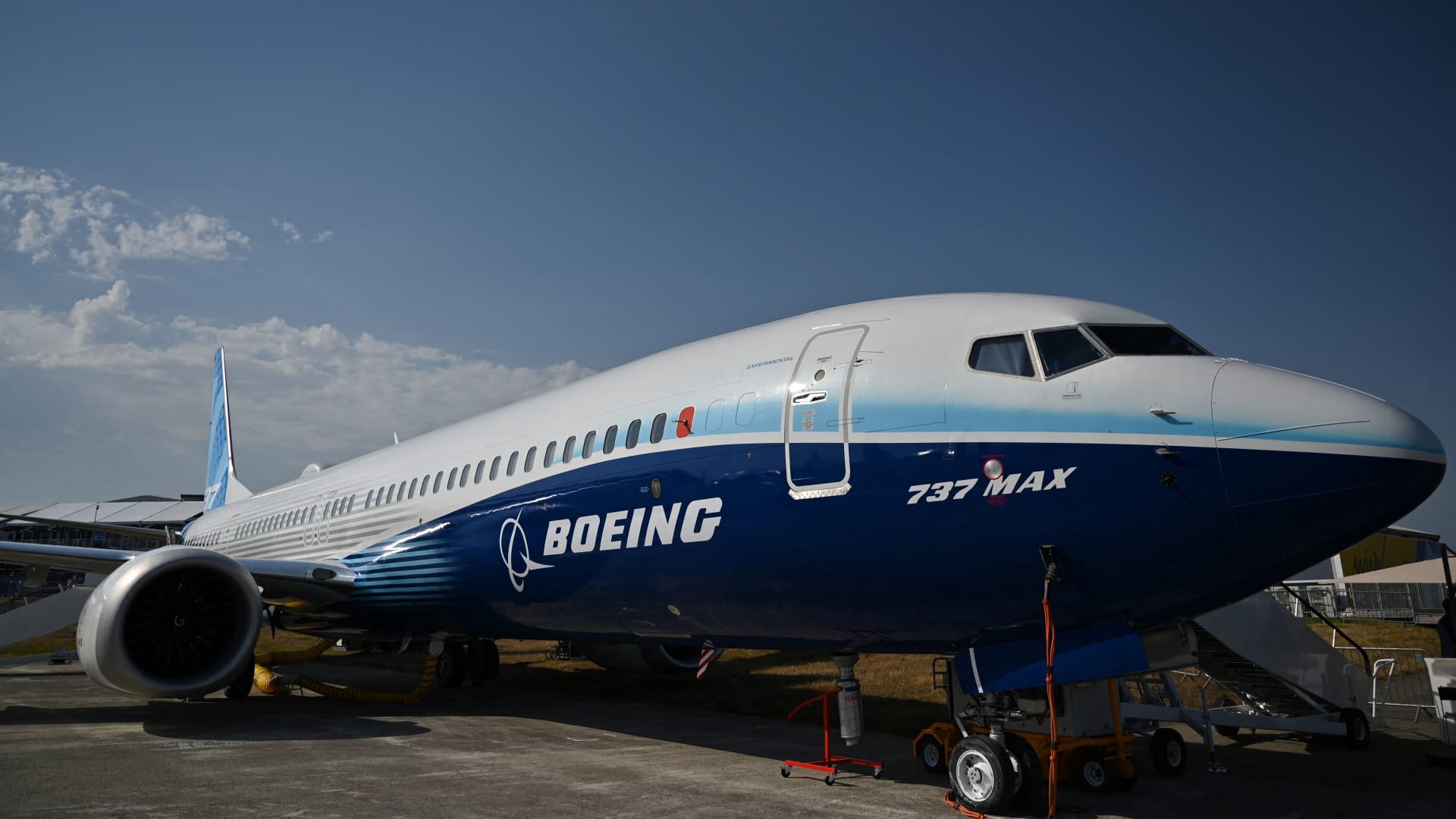A Boeing 737 Max is displayed during the Farnborough Airshow, in Farnborough, on July 18, 2022. (Photo by JUSTIN TALLIS / AFP) (Photo by JUSTIN TALLIS/AFP via Getty Images)
Justin Tallis | AFP | Getty Images
On the back of first-quarter earnings results that showed strong aircraft demand, Boeing said Wednesday it plans to increase output of 737 Max planes to 38 a month from 31 later this year, despite a manufacturing issue affecting some aircraft.
That production rate would be the highest in years for the bestselling aircraft and comes as Boeing seeks to get planes to airlines faster as those customers capitalize on a rebound in air travel. The company expects to deliver between 400 and 450 of its 737 planes this year.
“This is an important year for us,” Boeing CEO Dave Calhoun said in a staff memo Wednesday. “As demand surges across our markets, we must focus together on execution and meeting our customer commitments.”
Boeing is also planning to raise output of the 787 Dreamliner to five planes a month late this year from a current rate of three.
Boeing shares were up nearly 3% in midday trading after reporting results.
The plans come as the company said aircraft demand and stronger deliveries boosted Boeing’s revenue in the first quarter with sales up 28% year over year. The company narrowed its net loss to $425 million, or 69 cents per share, from a year-earlier net loss of $1.24 billion, or $2.06 per share.
Here’s how Boeing performed during the period ended March 31, compared with Refinitiv consensus estimates
- Adjusted loss per share: $1.27 vs. $1.07
- Revenue: $17.92 billion vs. $17.57 billion
Adjusting for special items, Boeing lost $1.27 per share, which was a wider loss than analysts surveyed by Refinitiv had expected. The company reported a $245 million pretax charge on the company’s KC-46A Tanker program tied to supplier issues.
Revenue in Boeing’s commercial airplane unit rose 60% in the first quarter to $6.7 billion as deliveries of new aircraft picked up, but the company said it was partially offset by 787 Dreamliner customer compensation for delivery delays.
It said a negative operating margin of 9.2% in the unit was tied to abnormal costs and research and development expenses.
On Tuesday, major aircraft suppliers General Electric and Raytheon Technologies reported higher revenue in their engine units and an increase in repair shop visits and spare parts businesses.
Boeing executives have said they would only raise output when they were confident in their supply chain, which has faced several snags after a host of layoffs and production declines during the Covid pandemic.
Earlier this month, the company disclosed a problem with two of eight fittings in a section of fuselage on certain 737 Max planes, its bestseller. Boeing had warned that the issue would slow deliveries of some aircraft.
The pace of deliveries is key to its cash flow goals since customers pay for the bulk of the planes upon delivery. Boeing on Wednesday reiterated it expects to reach adjusted free cash flow for the year of between $3 billion and $5 billion.
Correction: This story has been updated to remove an incorrect year-ago earnings figure.
Image and article originally from www.cnbc.com. Read the original article here.

